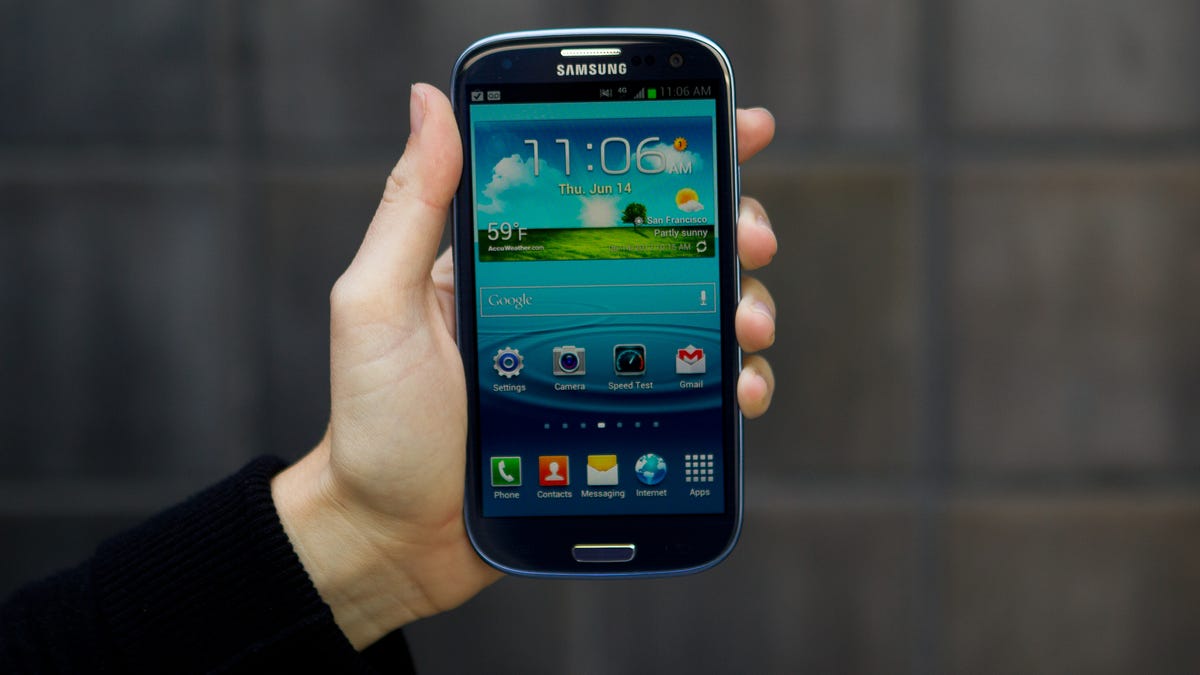Testing the fastest Samsung Galaxy S3 of them all
The Samsung Galaxy S3 may look identical from carrier to carrier, but when it comes to speed you can count on, I pick a first among equals.

While the Samsung Galaxy S III (S3) looks identical across all four major U.S. carriers, data speeds are anything but equal. I've been testing GS3 phones on one carrier or another for over a month now, and was curious which one gave me the fastest and which the most consistent speeds -- and if the two were the same.
"Fast" is, of course, a relative term. So many factors affect data speeds, from how well each carrier can cover your neighborhood, to architecture that could block your signal, to a high number of users that could congest the network at any given time. Fluctuation is therefore normal, and the absolute "fastest" speeds are hard to pin down.
There's also the question of diagnostic speeds versus real-word tests. Throughout my testing in various San Francisco locations, I used the Speedtest.net app to measure the download and upload speeds for each phone. As real-world tests, I would also visit Web sites and download a common game.
My time tests certainly won't match up with any you conduct in your own cities and neighborhoods, and I'm not suggesting that the outcome of my test is true every time in San Francisco. Carriers continuously build out and upgrade their networks across an urban or rural market, which means that the data speed landscape is very much in flux.
Verizon
Uplink speeds were generally high, at a peak of 19.1Mbps up and forays into the double digits in 15 tests out of 45. The rest of the time, Speedtest.net still recorded strong upload speeds that hovered in the 6-to-9Mbps range, with occasional dips into the 2s and 3s.
For my real-world test, I downloaded the Riptide GP game from CNET's office, a 41.47MB file. The game downloaded and installed in 50 seconds the first time and in 55 seconds on the second installation. Download times would doubtlessly be even faster in areas of the city where Verizon's network is strongest (it seems weaker here at CNET HQ.) After I cleared the browser's cache, cookies, and search history, CNET's desktop site loaded in 10 seconds.
AT&T
Uplink speeds were also consistently high, rarely dipping below 6Mbps and frequently crowning 12 or 13Mbps, with 14Mbps at the zenith. The network still has its soft spots and dead zones, spots where speeds crash to below 1Mbps, as shown above.
Riptide GP downloaded in 32 seconds and 37 seconds. CNET's Web site loaded in 8 seconds.
T-Mobile
Upload speeds were much slower, and ranged from under 1Mbps to a peak of 3.32Mbps. T-Mobile has a lot to work on in the uplink department.
Riptide GP downloaded and installed in 33 and 32 seconds from CNET's office. CNET's desktop site loaded in 6.6 seconds.
Sprint
Sprint's 3G network hobbled along in San Francisco. Out of 31 tests, speeds never broke 1Mbps downlink. The highest uplink speed was 1.04Mbps. Sprint's speeds won't stay sluggish in all corners as the carrier is beginning to switch on its 4G LTE network in 15 cities, starting with cities in Texas, Georgia, and Kansas.
The Galaxy S3 does not support Sprint's 4G WiMax network, so until LTE comes to your town, you'll be surfing on 3G.
While the diagnostics were damning, real-world tests were better. CNET's desktop site loaded up in about 30 seconds, and the GS3 loaded sites that are optimized for mobile with comparable speed to phones on faster networks: 4 seconds for the New York Times' mobile site.
The Riptide GP game took a very long time to download and install over 3G, 25 minutes and 46 seconds the first time, and 15 minutes and 34 seconds on the subsequent attempt.
Conclusion
Depending on what you value most, AT&T, Verizon, and T-Mobile each win a category. AT&T had the fastest peak diagnostic download time and one of the most consistent speed spreads in my test. Verizon had the highest and most consistent diagnostic upload rates. T-Mobile scored the fastest real-world times for both the Web load and games download tests.
Poor Sprint is barely chugging along on 3G, waiting for 4G LTE to rescue it. We'll certainly test those speeds on our existing LTE-capable Sprint phones as soon as LTE comes to our San Francisco or New York testing sites.
For now, I'm crowning AT&T the winner of my tests here in San Francisco, for both its high diagnostic peak and its consistency in real-world upload and download tests. Verizon and T-Mobile are toss-ups for my second choice, since I download more than I upload, and since T-Mobile's real-world HSPA+ tests fared better. Still, Verizon takes the cake in the upload camp.
In the end, the networks' rivalry is pushing carriers to deliver faster and faster data speeds than ever before, and we can all benefit from that.

